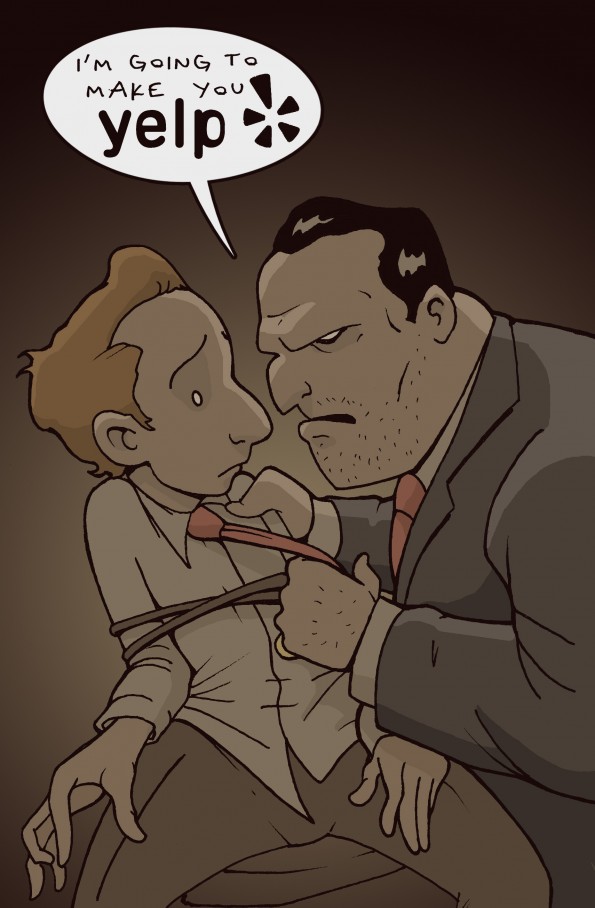
In the Old West, people lived and died by their reputations. Reputations were shared, and everyone was aware of who could or could not be trusted. Housewives, preachers and business owners moderated gossip, dispelling myths and supporting truths. But there was
always recourse a person could take if someone tarnished their reputation: strong words, a fistfight, a duel. But there is no such recourse in the virtual world.
The Internet has been described as the new Wild West. There is a new sheriff in town managing reputations. That law is Yelp. In San Francisco and other cities, people can work from home, slinging Yelp reviews. No need to even visit the business in question, reviews are a form of currency, and there are bottom-feeder businesses that can be hired to write good or bad business reviews.
Yelp claims that all reviews are treated equally. They will filter a review only if they discover that a contributor may not be real. But this filtering, according to several business owners we spoke with, never happens unless you are paying Yelp for advertising. Clearly, this is extortion.
Returning to the Wild West idea, this is like Bad Bart holding a business owner hostage with a huge sign on their door advising, “Don’t go here!!” A business might be held captive unless they paid Bad Bart’s ransom. Eventually the town would elect a sheriff and law and order would return. But no such policing has arrived on scene in the virtual world, so in essence, Yelp has been able to successfully extort money from business owners who are being held captive by negative online reviews. And now Yelp has garnered the support of not just Google but Yahoo as well.
But now local business owners are fighting back. The “Customers hate us on Yelp” movement followed by “Hate us on Yelp” were started in San Francisco by Botto Bistro. They flipped the Yelp model on its head by asking customers to leave one-star, sarcastic reviews. Their goal was to become the only one-star restaurant on Yelp. They succeeded! The publicity has won them many more customers, and more business owners are entering into the fight against Yelp.
Sara Lund owns Bodega and The Rest. When Lund opened Bodega 18 months ago, she was immediately alerted when Yelp reviews began appearing on her page. She never set up an account, and she never claimed ownership of her Bodega and Rest accounts, but the reviews continued to pour in. Eventually, she decided to complain about false negative reviews. Lund says Yelp representatives would not allow comments to be moderated until or unless she became an advertiser. Lund did not want to support a system which obviously legitimized phony reviews. Lund says that the most negative review she received was left by a customer who needed to be escorted out by the police because he had cornered two of her staff members.
Now Lund has joined the “Our Customers hate us on Yelp” movement. She has had stickers printed which she proudly displays on her glass window. Customers smile and ask about it, and she is happy to tell them her story. Lund had several more stickers printed, which she has given out to other restaurant owners.





